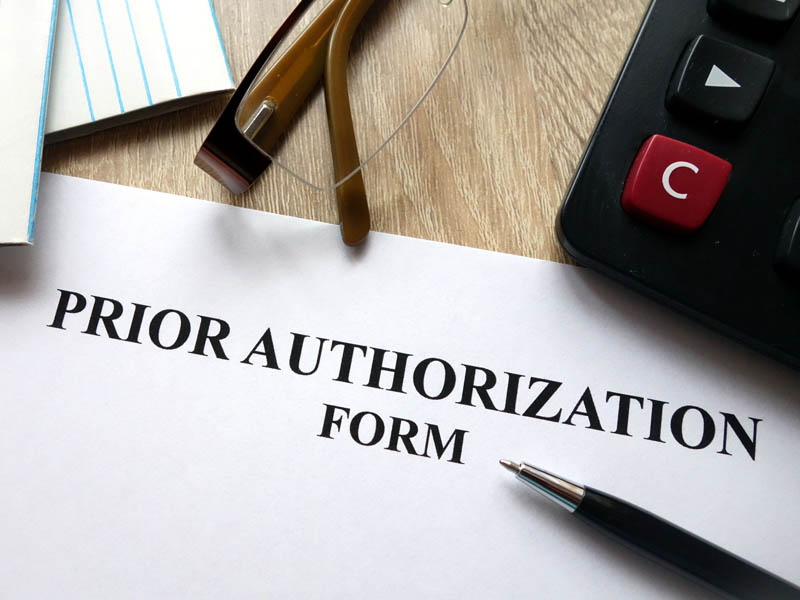Automating Prior Authorization Just First Step, AAFP Says
More Burden Reduction Still Urgently Needed
January 12, 2021, 3:15 pm News Staff — In a recent letter, the AAFP welcomed a proposed rule mandating automated responses to prior authorization requests but said it fell short of urgently needed process reforms. Because the rule likely won’t reduce the volume of prior authorizations and does not include Medicare Advantage plans or drug-related authorizations, the Academy said, it would fail to lessen administrative complexity.

“Streamlining and automating prior authorization requirements will not be enough to meaningfully reduce physicians’ administrative burdens and prevent unnecessary care delays,” the Academy wrote. “Prior authorizations must be limited to far fewer products and services than they are now. The AAFP urges CMS to use future rulemaking to continue discouraging the use of prior authorizations for services that are evidence-based and considered standard of care.”
The Dec. 23 letter — sent to HHS Secretary Alex Azar and CMS Administrator Seema Verma, M.P.H. — was in response to “Reducing Provider and Patient Burden by Improving Prior Authorization Processes,” published Dec. 20 in the Federal Register.
It was signed by Board Chair Gary LeRoy, M.D., of Dayton, Ohio.
Primary care physicians spend about half their time on administrative tasks, the Academy said, referring HHS and CMS to the AAFP’s Principles for Administrative Simplification.
“Prior authorization requirements are a significant and growing contributor to physicians’ administrative burden,” the letter added. “A recent survey found physicians and their staff spend an average of 14.5 hours, or almost two business days, each week completing prior authorizations.”
Story Highlights
In the same survey, 86% of respondents said prior authorizations had increased in the past five years, with one in four reporting that prior authorizations had led to “a serious adverse event for a patient in their care.”
By not standardizing prior authorizations across all payers governed by CMS, including Medicare Advantage, “this rule will not meaningfully reduce the administrative burdens with which family physicians are grappling,” the Academy said.
“It will also not be a worthwhile investment for physician practices to purchase a new electronic health records system or update that is compatible with the new standards if it only interacts with a small number of their contracted plans. The AAFP strongly recommends that CMS apply the same standardization and response requirements to MA plans, with the same effective date, in future rulemaking.”
The letter called on CMS to revise the final rule to include prior authorizations for prescription and outpatient drugs — for which current requirements are “the most burdensome,” the Academy said.
The Academy also commented on other elements of the proposed rule.
Application Programming Interface
CMS proposes to require, beginning Jan. 1, 2023, that state Medicaid and Children’s Health Insurance Program fee-for-service, Medicaid managed care and qualified health plan issuers (“impacted payers”) include, as part of the already established Patient Access API, information about the patient’s pending and active prior authorization decisions, and to require the use of specific implementation guides.
Expressing support for this move, the Academy noted that family physicians often “bear the brunt of patients’ frustration with prior authorizations and the associated care delays” and wrote that “allowing patients to see the status of their prior authorizations may help alleviate some of the added burden on physicians and their staff.”
Timeframes
The proposed rule would require Medicaid and CHIP fee-for-service, Medicaid managed care and CHIP managed care entities to respond to urgent prior authorization requests within 72 hours and standard requests in seven calendar days. For Medicaid managed care plans, the rule would authorize an extension of 14 days “if the enrollee requests it or a health plan determines additional information is needed.” If the payers fail to reply within the required timeframe, the physician or patient would have to contact the payer.
To lessen care delays and administrative burden while improving patient experience, the Academy recommended that CMS require payers to respond within 48 hours for nonurgent requests and 24 hours for urgent requests.
The letter objected to the 14-day extension and added that the proposed rule’s shifting of response burdens to physicians and patients “undermines much of the incentive for plans to respond to their own prior authorization requirements within a timely manner.”